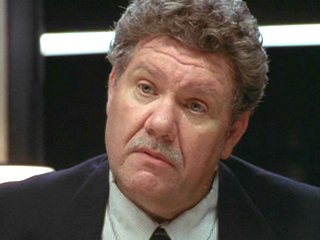
Hiram "Hank" Williams was an American singer, songwriter, and musician. He is regarded as one of the most significant and influential American singers and songwriters of the 20th century. Williams recorded 55 singles that reached the top 10 of the Billboard Country & Western Best Sellers chart, five of which were released posthumously, including 12 that reached No. 1, three of which were released after his death.

Ronald James Taylor was an American actor, singer and writer. He grew up in Galveston, Texas and later moved to New York City to attend the American Academy of Dramatic Arts. After graduating, Taylor began working in musical theater, appearing in The Wiz (1977), before getting his break with the 1982 off-Broadway production Little Shop of Horrors. Taylor voiced the killer plant Audrey II in the show, which ran for five years and over 2,000 performances.

Ryman Auditorium is a historic 2,362-seat live-performance venue located at 116 Rep. John Lewis Way North, in Downtown Nashville, Tennessee. A Rock & Roll Hall of Fame Landmark, National Historic Landmark, and the former home of the Grand Ole Opry, it is one of the most influential and revered concert halls in the world. It is best known as the home of the Grand Ole Opry from 1943 to 1974. It is owned and operated by Ryman Hospitality Properties, Inc. Ryman Auditorium was listed on the National Register of Historic Places in 1971 and was later designated as a National Historic Landmark on June 25, 2001, for its pivotal role in the popularization of country music.A storied stage for Rock & Roll artists for decades, the Ryman was named a Rock & Roll Hall of Fame Landmark in 2022.

Rufus "Tee Tot" Payne was an early-20th-century African-American blues musician from Greenville, Alabama, who was more widely known by his nickname Tee Tot.

"Your Cheatin' Heart" is a song written and recorded by country music singer-songwriter Hank Williams in 1952. It is regarded as one of country's most important standards. Williams was inspired to write the song while driving with his fiancée from Nashville, Tennessee, to Shreveport, Louisiana. After describing his first wife Audrey Sheppard as a "cheatin' heart", in minutes he dictated the lyrics to Billie Jean Jones. Produced by Fred Rose, Williams recorded the song at his last session at Castle Studio in Nashville, Tennessee, on September 23.

The Immigrant is a four-person chamber musical with music by Steven M. Alper and lyrics by Sarah Knapp, with a book by Mark Harelik. The show is based on Harelik's 1985 play of the same name.
Bill Randolph is an American actor who has starred in films and appeared on television.

Pay the Devil is the thirty-second studio album by Northern Irish singer-songwriter Van Morrison. It was released in 2006 by Lost Highway. The album features twelve cover versions of American country and western tunes and three original compositions. It debuted at No. 26 on The Billboard 200 and peaked at No. 7 on Top Country Albums; it was listed at No. 10 on Amazon Best of 2006 Editor's Picks in Country in December 2006.

Michael Patrick Moran was an American actor and playwright.
Love, Janis is the musical stage show about the life and music of rock and roll singer Janis Joplin, conceived, adapted and directed by Randal Myler. It debuted Off-Broadway in 2001 at the Village Theater with musical direction by former Big Brother And The Holding Company band member Sam Andrew. The show had a long and healthy run, garnering over 700 performances.

Marcus Frank Harelik is an American television, film, and stage actor, and playwright.

Quilters is a musical with a book by Molly Newman and Barbara Damashek, and lyrics and music by Barbara Damashek. It is about the lives of American pioneer women based on the book The Quilters: Women and Domestic Art by Patricia Cooper and Norma Bradley Allen. The show was originally developed and produced by the Denver Center Theater Company, Brockman Seawell, executive producer. It had a brief run on Broadway in 1984.
Eduardo Oscar Machado is a Cuban playwright living in the United States. Notable plays by Machado include Broken Eggs, Havana is Waiting and The Cook. Many of his plays are autobiographical or deal with Cuba in some way. Machado teaches playwriting at New York University. He has served as the Artistic Director of the INTAR Theatre in New York City since 2004. He is openly gay.
It Ain't Nothin' But the Blues is a musical written by Charles Bevel, Lita Gaithers, Randal Myler, Ron Taylor, and Dan Wheetman. It was originally produced at The Denver Center for the Performing Arts and later presented by the Crossroads Theatre, in association with San Diego Repertory Theatre and Alabama Shakespeare Festival in New York City at the New Victory Theatre, Lincoln Center, and Broadway's Ambassador Theatre, where it garnered five Tony Award nominations, including Best Musical.
American Blues Theater is a nonprofit, professional Equity theater company in Chicago, Illinois, United States. The ensemble currently has 30 members.
"Lost Highway" is a country music song written and recorded by blind country singer-songwriter Leon Payne in 1948. It was released in October 1948 on Nashville-based Bullet label.

I Saw the Light is a 2015 American biographical drama film directed, written, and produced by Marc Abraham, starring Tom Hiddleston as country music legend Hank Williams and Elizabeth Olsen as his first wife, Audrey Williams. It is based on the book Hank Williams: The Biography by Colin Escott, George Merritt, and William (Bill) MacEwen. It was screened in the Special Presentations section of the 2015 Toronto International Film Festival.
Colin Escott is a British music historian and author specializing in early U.S. rock and roll and country music. His works include a biography of Hank Williams, histories of Sun Records and The Grand Ole Opry, liner notes for more than 500 albums and compilations, and major contributions to stage and television productions. Honors include multiple Grammy Awards and a Tony Award nomination.











